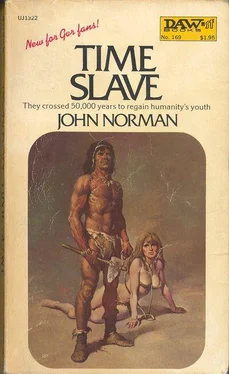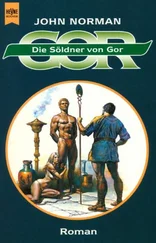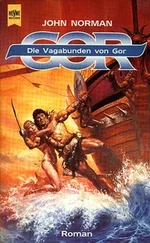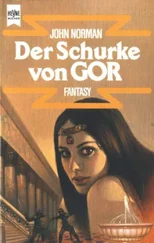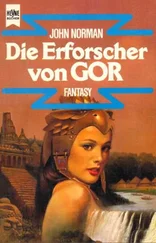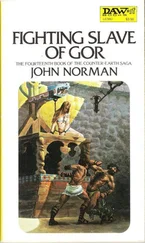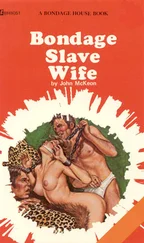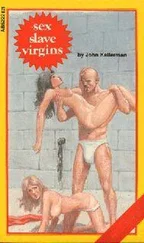Hamilton thought of Herjellsen. Herjellsen had been Finnish. He had had something of their appetites, their stubbornness.
“Have you been long in Copenhagen?” asked the man of the couple, sitting near her, in English.
“No,” she responded. She smiled, but she did not want to talk. They returned to their conversation. Hamilton looked again into the small cup of coffee, and then lifted it to her lips and drank. She buttoned the top button on her sweater.
There was no particular reason, as far as she knew, why she had come to Copenhagen. She was now well fixed. Herjellsen, before she had left the compound, had seen to that. William and Gunther, not speaking, had driven her more than two hundred and fifty miles to Salisbury.
“Good-bye,” they had said to her.
“Good-bye,” she had said, and boarded the plane. They had returned to the compound.
Her eyes had been dry, but inside her body there had been only emptiness and ashes. Herjellsen was dying. He had failed, and William and Gunther had failed and she, too, had failed. She had boarded the plane, and fastened her safety belt, and the runway had slipped away beneath her and in a few moments she saw Rhodesia, whitish and dry in the sun, vanish under the metallic wing.
The adventure, the experiment had ended. Tree was gone.
And the child had died.
William and Gunther returned to the compound. William did not wish to leave Herjellsen. Both, in that lonely, fenced compound in the bush, with the blacks, would keep the vigil, waiting for the old man to die.
Then there would be nothing to keep them there.
The compound, deserted, would fall into disrepair and ruin, and the dry wind would blow across a simple grave.
The adventure was ended. The experiment had failed. Herjellsen had lived in vain.
It was then that Hamilton saw them, the young couple. They were entering. They were seeking a table.
She felt faint, and held to the edge of her own table.
They sat not far from her, arguing. The girl looked not unlike Flower. There was something subtle, about the eyes, the mouth, that reminded her of Flower, but her eyes, stunned, could see little of the woman, for the body, the face, of the young man, half blurred, seem to swim in the center of her vision, and all else about, ringing his shoulders and head, and face, seemed dark, vague, meaningless, peripheral to the central reality dominating her focus; slowly the image formed itself, sure, precise, bright, startling. Hamilton caught her breath. The world seemed to swirl about her, turning about that face and shoulders, and then stopped. There could be no mistake. She sobbed. She wanted to reach out, to touch him. But she knew she must not.
Slowly, in snatches, she caught the conversation, between them. She did not understand all of it, for her Danish was poor, but she understood its purport, its themes.
There was silver to be bought, for table settings. There was a shop where furniture might be purchased. Already she had located an apartment. She must show it to him. His studies were completed. He wished to spend a year at sea. He was not ready. That was foolish. In her father’s company a place was waiting for him. His position was secure. She loved him. He would rise in the business. In time they would be wealthy.
Hamilton paid little attention to what they said. Mostly she could not take her eyes from the boy. She wanted to go to him with her fingers to lightly brush the blond hair from the side of his neck. He had taken off his student’s cap, and J v-r
put it on the table. He was saying, he did not wish now to do something. He did not know how to speak to her.
She was impatient. Did he not love her? He must make his decision. He spoke of further studies. There was no money in such things. He wished to do advanced work. He wished to think. He wanted to go to sea. Later perhaps he would return to the university. He spoke of astronomy, physics.
If you do not do what I wish, she was saying, I will leave you. You must decide, she said. If you love me, you will please me. If you do not do what I wish, she was saying, I will leave. I will leave you. She was adamant.
Hamilton saw the boy’s eyes become agonized.
He looked up.
“Forgive me,” said Hamilton, softly, in English, “I do not mean to intrude.”
The girl looked angrily at her. What did she want, this strange woman? Indeed she was intruding!
The young man stood. He seemed startled.
“No, said Hamilton, softly, “you do not know me. But I know you.”
“Tell her to go away,” said the girl.
The young man, puzzled, somehow shaken, regarded Hamilton. He did not tell her to go away.
“Forgive me,” said Hamilton. Then, very slowly, with incredible tenderness, she lifted the hair away from the side of his neck. “Forgive me,” she whispered, and kissed the mark which lay below his left ear.
“I do not understand,” he said, slowly, in English.
“I love you,” said Hamilton. “That is all.”
“Come away!” said the girl to him, in Danish. Then she repeated the imperative, insistently, in English, that Hamilton would clearly understand. She took him by the hand. He shook loose her hand, angrily. He looked down at Hamilton.
“I love you,” said Hamilton.
“I do not know you,” he said, very slowly.
“No,” smiled Hamilton. “You do not know me.”
“Who are you?” be asked.
She smiled. “Your mother,” she said.
The blond girl cried out with irritation.
“No,” smiled the young man. “You are not my mother.”
“I am, and I am not,” said Hamilton. “I am the mother of the mothers, the mother of the sons.” The blond girl snorted with irritation. Hamilton smiled. “No,” she said, “I am not insane, though you cannot understand how I should speak like this, and that not be so. I do not mind. Regard me as you will. It does not matter. What matters is you, and the stars. Be true unto your mightiness, and do not forget the stars.”
He looked at her strangely.
“But,” said Hamilton, “I speak foolishly. You can never forget them, for the call of the stars, their heat, their light, lies within your blood. Into your blood and bones, though you do not understand how this can be, the seeking of the stars is bred. It was the intention of a man you do not know, called Herjellsen. You will not relinquish infinity, my love my son. It is your destiny. Seek the stars.”
Then Hamilton stood back from the young man, proudly. She drew herself up and pointed to him. When she spoke, it was in the language of the Men. “Here, Tree,” she said, “is my son.” “Here, Tree,” she said, “is your son. Do not laugh Tree. He is your son and mine. And you would, as I, find him pleasing.” Then she addressed herself to the young man. She looked upon him fiercely. Again she spoke in the language of the Men. “Make the hunters proud of you!” she said.
He stood, startled.
“Come away from this madwoman!” said the blond girl, seizing him by the hand.
Again he, angrily, shook away her hand. She was furious.
“I will tell you of your heritage,” said Hamilton to the young man. She spoke in English. “I will speak briefly. It is simple, and it is deep. It is this. In your veins lies the blood of hunters and masters.”
He looked at her.
“Come away!” cried the blond girl.
“This female,” said Hamilton, pointing to the girl, “belongs in a collar at your feet.”
The girl’s fingers inadvertently touched her own throat.
“If she pleases you,” said Hamilton, “keep her. If she does not please you, discard her. If you keep her, keep her on your terms, not hers. Enslaved, she will adore you; freed, she will kill you.”
“Be quiet, madwoman!” screamed the girl. She turned to the boy. “Nils!” she said.
Читать дальше
